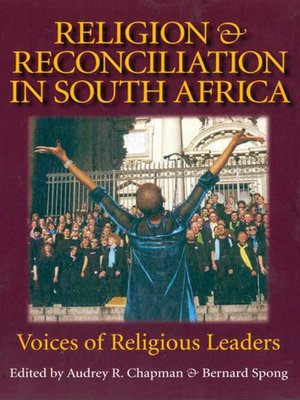Religion and Reconciliation in South Africa
ebook ∣ Voices of Religious Leaders
By Audrey R. Chapman

Sign up to save your library
With an OverDrive account, you can save your favorite libraries for at-a-glance information about availability. Find out more about OverDrive accounts.
Find this title in Libby, the library reading app by OverDrive.



Search for a digital library with this title
Title found at these libraries:
| Library Name | Distance |
|---|---|
| Loading... |
Post-apartheid South Africa’s efforts to come to terms with its past, particularly its Truth and Reconciliation Commission’s emphasis on forgiveness and reconciliation, is of special interest to many in the world community. The Truth and Reconciliation Commission (TRC), led by Archbishop Desmond Tutu, was mandated to go beyond truth-finding and to “promote national unity and reconciliation in a spirit of understanding which transcends the conflict and divisions of the past.” In contrast with other truth commissions, the TRC was led by clerics rather than lawyers and judge, and the TRC’s approach to reconciliation was shaped by and imbued with religious content. The TRC submitted its final report to the Mandela administration in October 1998.
Over the next two years, the Rev. Bernard Spong, former communications director of the South African Council of Churches, conducted a series of in-depth interviews about the TRC with 33 key religious figures. In this volume, they discuss and evaluate the following issues:
How should we understand the concept of national or political reconciliation and its requirements?
What are the differences and similarities between religious and political approaches to reconciliation?
Does national or political reconciliation require forgiveness between former victims and perpetrators?
What is the appropriate role of religious representatives in a truth commission process? And is it recommended that other countries emulate the South African model?
How do religious leaders assess the contributions and limitations of the TRC?
What kind of initiatives are contemporary religious communities taking to promote reconciliation among their members and in the wider society?
The conversations presented in this volume, and the essays interpreting them, seek to illuminate issues and questions raised by the TRC model, including how to conceptualize reconciliation and the differences between political and religious approaches.
Highlights
Provides a key resource for policy makers, clergy, students, and lay people interested in forgiveness and reconciliation
Originates from a multidisciplinary study with the American Association for the Advancement of Science, the world’s largest general scientific society
Includes interviews, extensive notes, and index







